Donald Trump believes strongly that “tariff” is his most powerful weapon against China, and other countries for that matter, for refusing to kowtow to the supremacy of America. The weaponization of tariffs was used to the extreme on Chinese goods. When Beijing refused to surrender, the U.S. blacklisted Huawei in an attempt to kill the Chinese tech giant.
China is ready to unleash its own weapon – restrict rare earth exports to the U.S. Of course, such action will not bring America to its knees. But it would create enough chaos since China accounted for 80% of all rare earth minerals imported by the US between 2014 and 2017. While waiting for that to happen, Beijing has quietly put the brake on purchases of U.S. soybeans.
According to Bloomberg, even though China had agreed earlier this year to buy 10 million tons of U.S. soybeans, the purchases have halted, with about 7 million tons of soybeans yet to be delivered to China. As the world’s largest soybean buyer, China’s move could be seen as a tactical move to put economic pressure on American farmers.
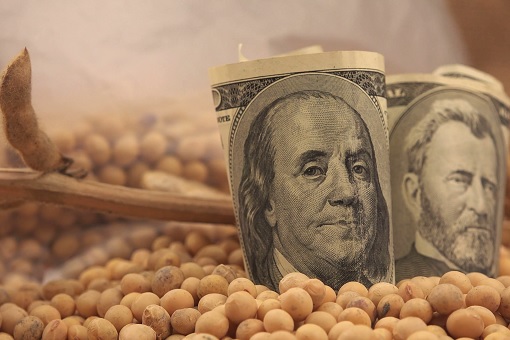
Huawei has already sent home American citizens working in research and development (R&D) centers at its Chinese headquarters in Shenzen. Taking a page from Trump’s playbook, Beijing has compiled a list of “unreliable” foreign entities deemed to have damaged the interests of Chinese firms . Those foreign businesses or individuals would be “blacklisted”.
It is believed that China is waiting for Trump to make his next move before sending a new wave of retaliations. But Trump has suddenly lost his appetite on China. Unexpectedly, the U.S. president threatened to slap a 5% tariff on Mexican goods. If Trump goes through with his threat, all Mexican imports will be 5% more expensive effective June 10.
This time, it was not to force trade concessions from Mexico. Trump argued that not only would Mexico be forced to fix the migrant crisis currently plaguing America, but that drug smuggling would decrease, U.S. auto manufacturers would return home and the U.S. trade deficit with Mexico would improve. But even the U.S. president’s own adviser does not agree with the argument.
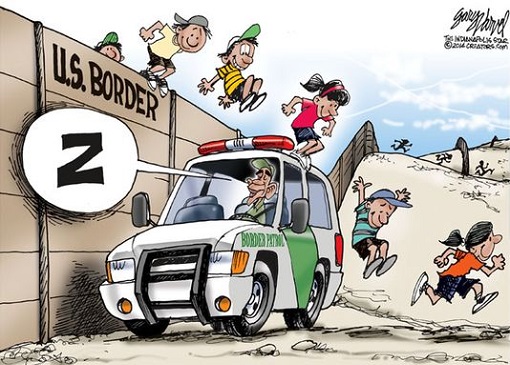
Caught with their boss’ 180-degree turn, as Washington just took a formal step to kick-start approval of the United States-Mexico-Canada Agreement, senior trade advisor Peter Navarro disagreed with President Trump. He said – “This is strictly about national security and threats to our economy from illegal immigration from a criminal enterprise.”
Likewise, acting White House Chief of Staff Mick Mulvaney said – “These are not tariffs as part of a trade dispute. These are tariffs as part of an immigration problem. The USMCA (the new United States-Mexico-Canada Agreement) is a trade matter and completely separate.” Clearly, both Navarro and Mulvaney were quite humiliated over their boss’ abrupt tariff announcement.
The United States imported US$346.5 billion of goods from Mexico in 2018. A 5% new tariff would make Mexican goods pricier by about US$17 billion, mostly to be paid by American consumers, not by Mexico as in the case of Chinese goods being slapped with tariffs by President Trump in the current US-China trade war. The Dow plunged 354.8 points as a result of Trump’s unexpected outburst.
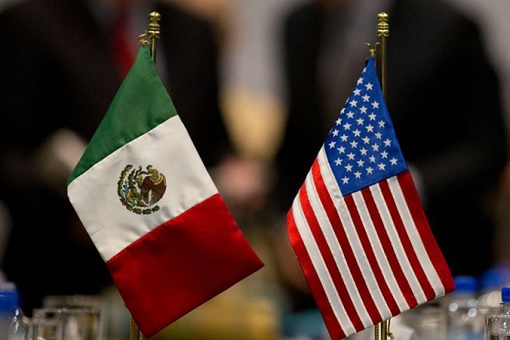
So what was happening in the White House? Apparently, President Trump was incredibly annoyed and frustrated over the surge in border crossings. His administration is fighting a losing battle against illegal immigrants. Customs and Border Protection officials in April detained 109,144 migrants at the southwest border alone, the highest total since 2007.
The invasion of illegal migrants was so bad that since December, the federal government has released 180,000 migrant family members in the United States, including some at bus stations. To ease overcrowding at facilities, the Department of Homeland Security was forced to fly the illegal immigrants between temporary holding centers in the United States.
President Trump said he would escalate the tariffs on all Mexican imports from the initial 5% to 25% – until Mexico stops the illegal immigrants. However, in a bizarre move, Treasury Secretary Steve Mnuchin and U.S. Trade Representative Robert Lighthizer have expressed their opposition against the tariffs. As it turned out, it was Stephen Miller, an immigration hawk, who pushed the idea to Trump.
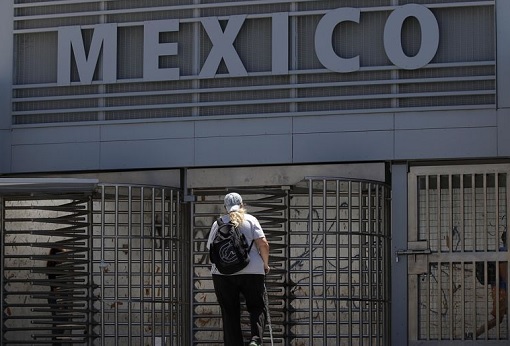
Unlike China, Mexico has very few bullets to retaliate. Mexico’s economy, already shrank in the first quarter, relies heavily on exports to the United States. President Andres Manuel Lopez Obrador said Mexico would not engage in any trade wars with the U.S. Already. Mexico said it is ready to step up measures to contain migration in order to pacify Donald Trump.
Still, Trump’s surprise U-turn to impose new tariffs on Mexican goods, despite having sent a letter to Congress to approve the North American Free Trade Agreement, has raised doubts over the U.S.’ integrity and trustworthiness in any potential US-China trade deal. How could Beijing trust Washington that Trump would not do a similar “Mexico” to China, even after a trade deal is sealed?
After all, we’re talking about the same U.S. president who had unilaterally violated its obligations under the Iran nuclear deal after the U.S. pulled out of a sealed deal and reimpose sanctions on Iran’s oil. Iran had already dismantled a major portion of its nuclear program and even given international inspectors freedom to do inspections to make sure it wasn’t cheating.
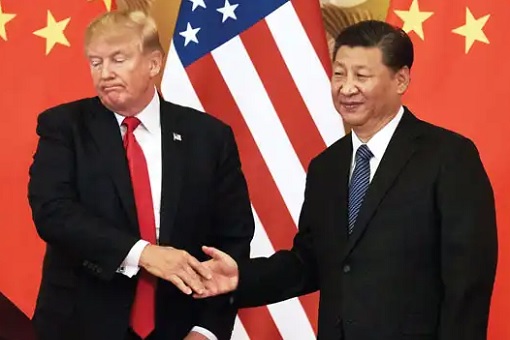
Trump administration had blamed China for deleting all the commitments in each of the 7 chapters of the draft of trade deal, including theft of U.S. intellectual property and trade secrets, forced technology transfers, competition policy, access to financial services and currency manipulation. The U.S. accused the Chinese of being greedy.
China disagreed, arguing that it was “common practice” to make new proposals and adjustments as the talks progressed, something the US had done consistently. After all, as no deal was signed, changes were allowed. In retaliation, Beijing revealed in a white paper that says – “The more the U.S. government is offered, the more it wants” – suggesting the U.S. also got greedy.
Other Articles That May Interest You …
- How Trade War Creates “Garbage Crisis” – After China, Now Philippines & Malaysia Reject The West’s Trash
- From Trade War To Tech War – After 5G Technology, The US Aims To Cripple China’s Artificial Intelligence
- Watch Out Trump!! – China May Weaponize “Rare Earth” To Retaliate Against U.S.’ Ban On Huawei
- China’s New Message To The U.S. – “Negotiate – Sure!”, “Fight – Anytime!”, “Bully Us – Dream On!”
- Trump Is Bluffing – He Will Not Let The Stock Market Collapse, And He Lied About Forcing China To Pay $100 Billion
- American Trash Talk – After Trade War, Now U.S. Hopes Can Still Dump “Garbage” In China
- China Reveals Strategy To Fight U.S. Trade War – Stop Buying American Debt
- U.S. Household Debt Hits Record $12.84 Trillion – China Top Owner Of I.O.U. Papers
- U.S. Debt – How Much Does Each American Owe?

|
|
June 2nd, 2019 by financetwitter
|


|

|

|

|

|

|




























The world should doubt the trustworthiness of Americans
as any agreements and contracts signed can be void by a stroke
of pen.